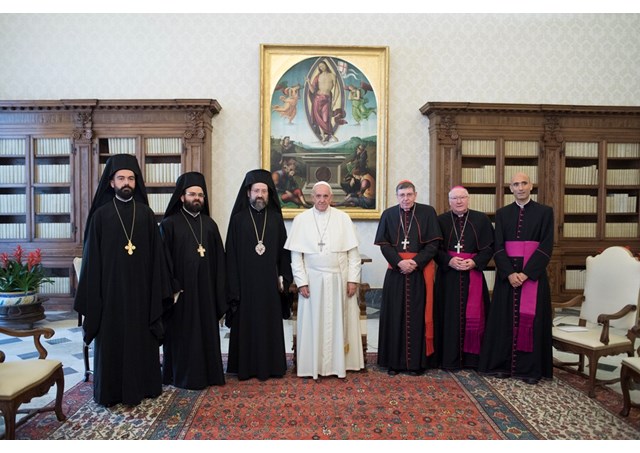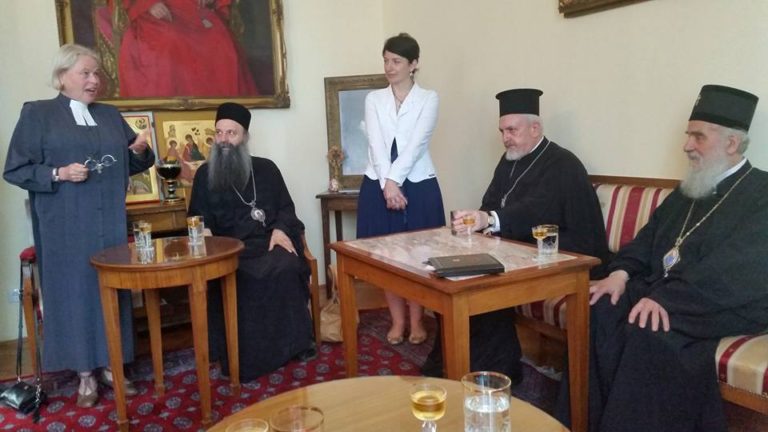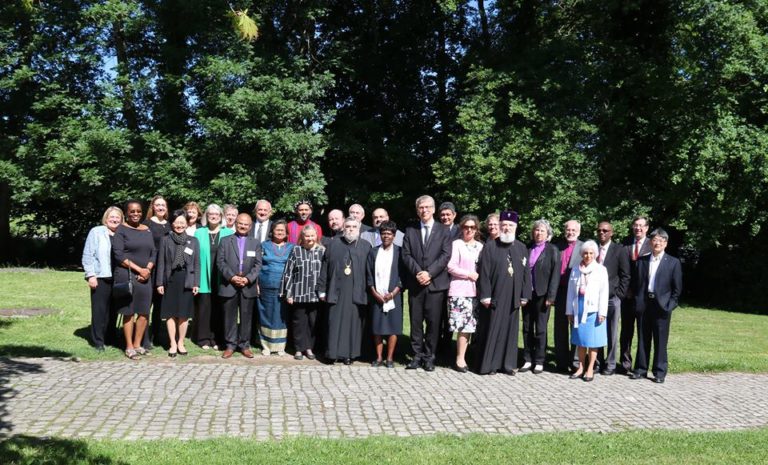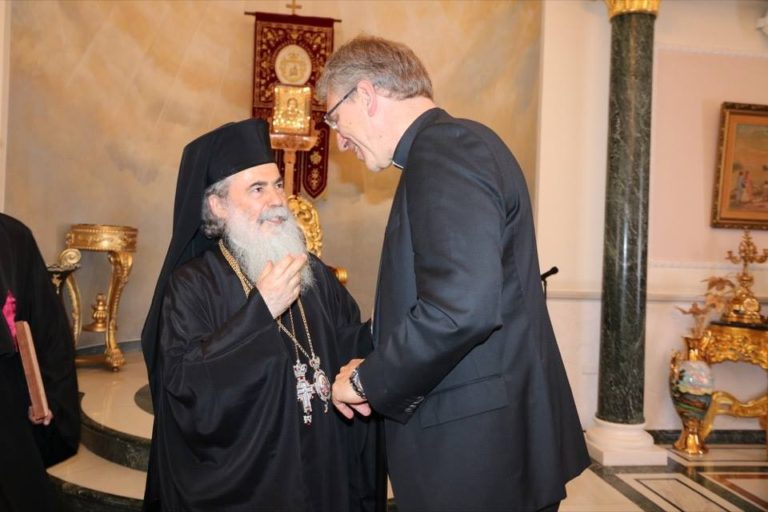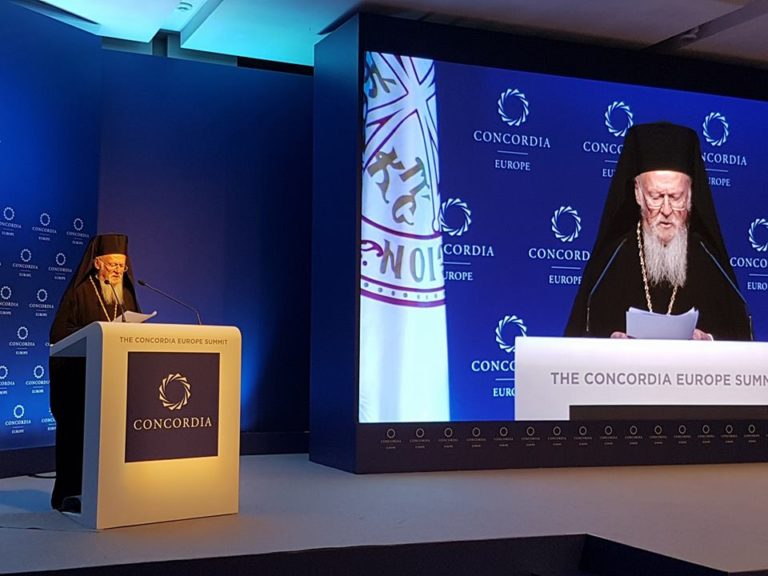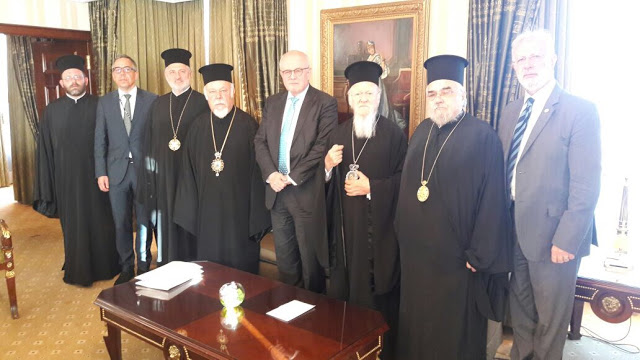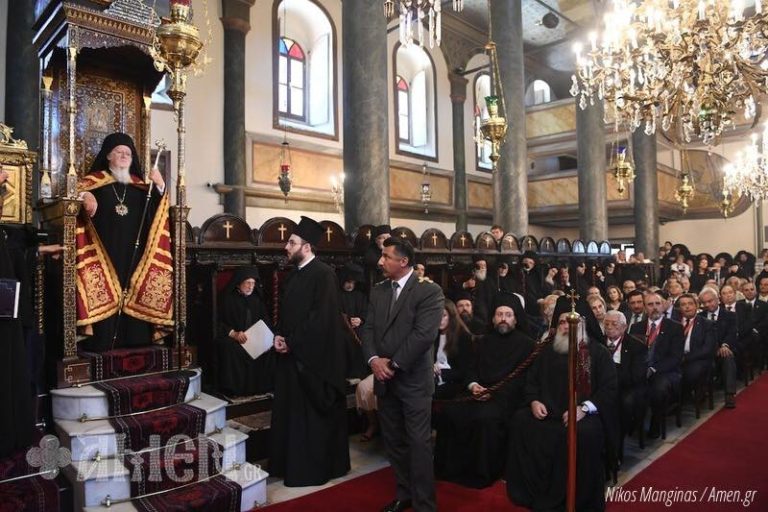
On 10-11 June 2017, His All-Holiness the Ecumenical Patriarch Bartholomew celebrated his names day on the feast of the Holy Apostles Bartholomew and Barnabas. Vespers were celebrated on the evening of 10 June at the Monastery of the Life-Bearing Source (Baloukle) in the presence of a large number of hierarchs of the Ecumenical Throne, of Archon Mr. Theodoros Angelopoulos, of the General Consul of Greece Mr. Evangelos Sekeres, and many faithful who came to attend the feast from different parts of the world.
On the next day, the Divine Liturgy was celebrated at the Patriarchal church of St. Georges at the Phanar, presided from the throne by His All-Holiness the Ecumenical Patriarch together with their Eminences the Senior Metropolitan Constantine of Nicea, the Senior Metropolitan Athanasios of Chalcedon, the Senior Metropolitan Apostolos of Derka, the Metropolitans Jeremiah of Switzerland, Germanos of Thranoupolis, Chrysostom of Dodoni, Alexander of Mantineia and Kynouria, Cyrill of Imbros and Tennedos, Iakovos of the Princes Islands, Joseph of Prinkeponnessos, Meliton of Philadelphia, Dimitrios of Sebastia, Irenaios of Myriophytos and Peristasis, Chrysostom of Myra, Dionysios of Synada, Gennadios of Sasima, Theolyptos of Ikonion, Savas of Pittsburgh, Athenagoras of Belgium, Cyrill of Rhodes, Eugene of Rethymnon and Aulopotamos, Damascene of Kydonia and Apokoronos, Polycarp of Spain and Portugal, Nathanael of Chos and Nisyros, John of Lagada, Liti and Rentini, Stephen of Kalliopoli and Maditos, Elpidophoros of Proussa, Athenagoras of Kydonia, Cleopas of Sweden and Scandinavia, Maximos of Selivria, Gerasimos of Petra and Cheronissos, Bartholomew of Smyrna, Cyrill of Ierapytni and Seteia, and Archbishop Job of Telmessos. Were also present Metropolitan Evangelos of Perge, Maximos of Ioannina, Archbishop Nektarios of Anthedonos (permanent representative of the Patriarchate of Jerusalem in Constantinople), Bishop Anthony of Bogorodsk (representing the Church of Russia), Bishop Melchizedek Margbete and Oubiza (representing the Church of Georgia), and Bishops Makarios of Lampsakou, Eymenios of Lefkis, Theodoritos of Nazianzos, Cyrillos of Abydos, Nicephore of Amorion, Adrianos of Alikarnassos and Cyrill of Erythron, of many clergy, monastics and laity from all over the world, of the General Council of Greece in Istanbul Mr. Evangelos Sekeres, of the Ambassador of Greece to Ukraine Mr. Georges Poukamisas and many honored guests. At the end of the Divine Liturgy, after the homily of His All-Holiness, His Grace Bishop Anthony of Bogorodsk (representing the Church of Russia) read the greeting letter and presented the gift on behalf of His Holiness Patriarch Kirill of Moscow.
